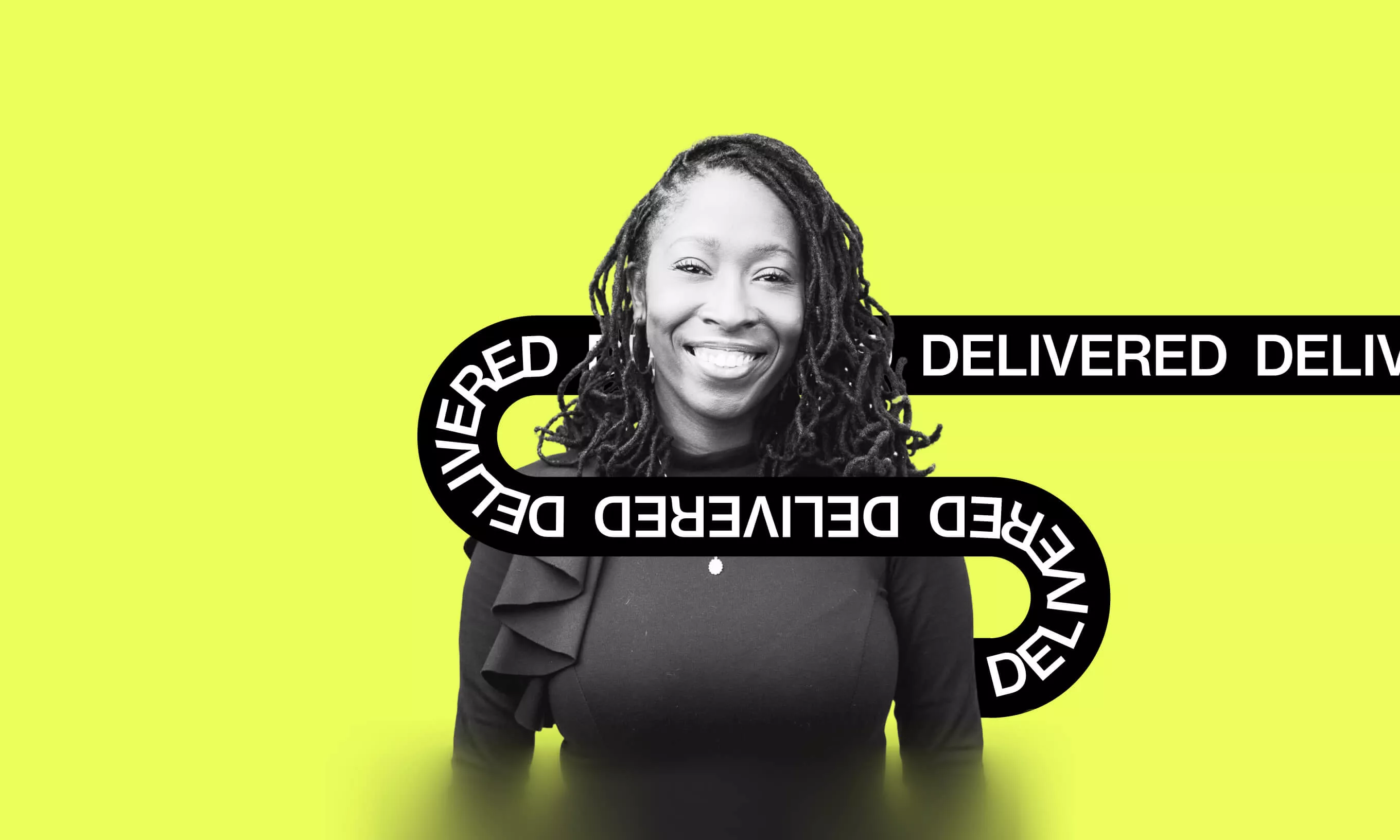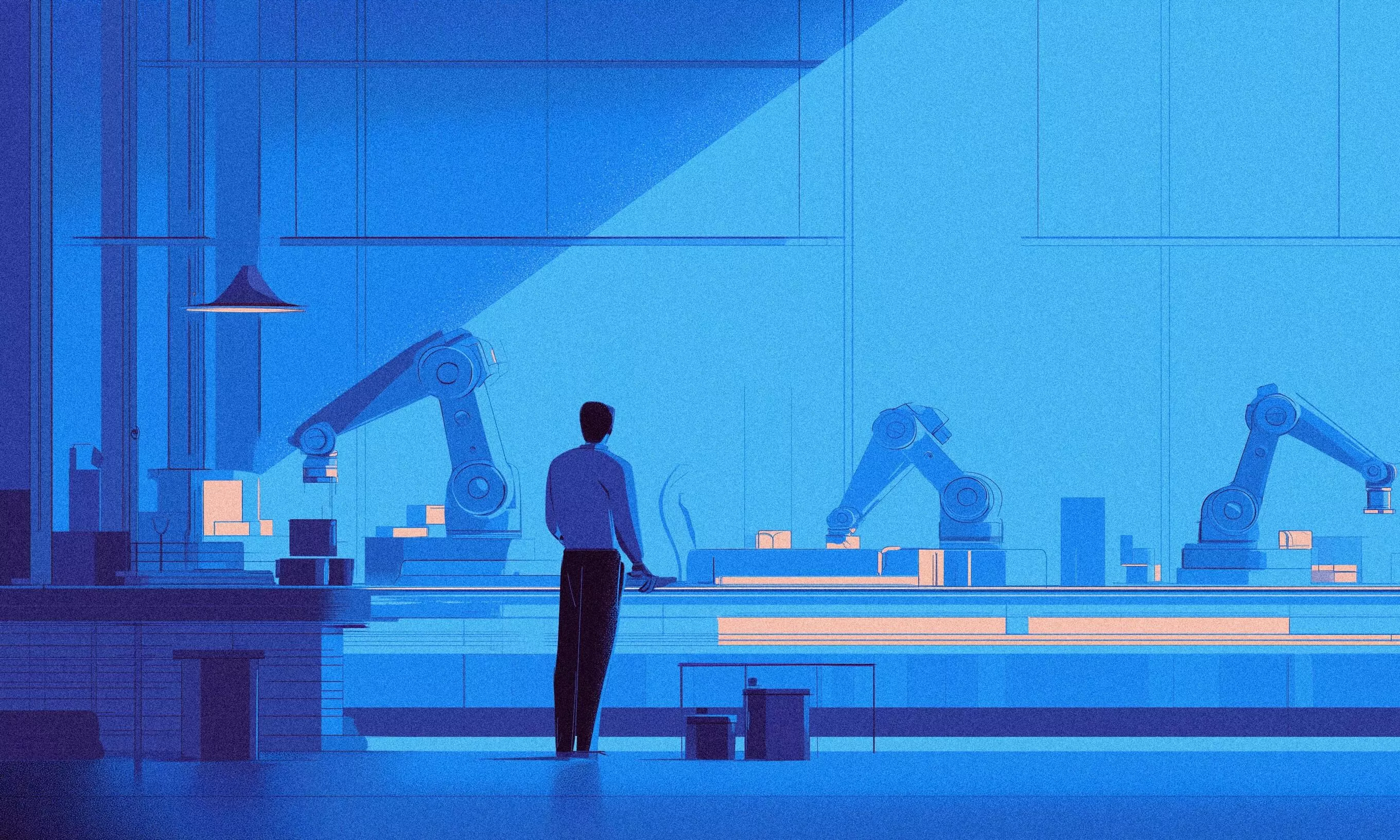Kameale C. Terry, CEO and co-founder of ChargerHelp!, appears in our event series Delivered to discuss how she turned the problem of unreliable EV chargers into a successful startup.
Every new technology hits a few speed bumps on the road to widespread adoption. But with more than a quarter of public electric vehicle chargers not working at any given time, drivers are left stranded, automakers are frustrated, and the planet is left waiting for an EV revolution that can’t happen without a reliable charging network.
In 2020, Kameale C. Terry took this problem head on and launched ChargerHelp!, a tech-driven EV charging station repair and maintenance company. Under her leadership, the company has raised $21M, expanded to 17 states, created a new job category, and helped shape the EV charging reliability policy.
Appearing on Delivered, Kameale discussed what’s really behind the unreliable charging infrastructure and how her company is transforming the industry with workforce training, advanced technology, and mission-driven leadership.
What’s the deal with unreliable EV chargers?
It’s easy to forget just how far we’ve come with electric vehicles. Not long ago, EVs were seen as quirky, niche, and not really built for the everyday driver. Today they’re stylish, fast, and packed with features that make the driving experience genuinely exciting, even for people who don’t consider themselves environmentally conscious.
EVs now make up one in four new car sales globally, and that number is only expected to grow. But while the vehicles have evolved, the charging infrastructure hasn’t kept pace.
As one Delivered viewer pointed out:
“Infrastructure is one of the biggest challenges. Many countries offer a wide range of EV models, but drivers often have almost nowhere to charge them outside their homes,” said Juan David Gómez, Founder of Autobusqueda.co and CEO of DriveGear.
Another viewer echoed this concern, highlighting how the lack of accessible charging fuels range anxiety for many drivers:
“Compared to gas cars, EVs require more pre-planning and research to locate charging stations, especially in rural areas. A smarter infrastructure should prioritize both convenience and accessibility, ensuring that charging stations are as widely available as gas stations,” said Rebeca Perez, Director of Business Development, Woods Maintenance Services, Inc.
As Juan and Rebeca pointed out, finding a charger is hard enough. Finding one that actually works is even harder.
In the U.S., about one in four public chargers is out of order at any given time. A big part of the issue is that EV charging relies on a patchwork of different hardware and software providers. These systems are supposed to work together, but often don’t due to a lack of shared data and standardized protocols. Tesla’s charging network is the only exception. As a vertically integrated system, its vehicles, chargers, and data come from one source, allowing the company to roll out remote fixes in hours.
But charging reliability isn’t just a problem of the fragmented industry. It’s also a workforce problem. EV charger repair requires a unique skill set: part electrician, part software troubleshooter, part tech support. Yet for years, the default industry response was to send electricians to fix what was in 90% of cases a software-related issue. A trained workforce simply wasn’t available.
Turning EV charging reliability into reality
That gap in skilled labor is exactly what ChargerHelp! set out to close. The company created a specialized workforce and partnered with the Society of Automotive Engineers (SAE) to define official training and certification standards. As a result, the role of EVSE technician is now a recognized profession with clearly defined skills.
And workforce development was just the beginning. Technology and data have played an equally important role in the company’s success. ChargerHelp! developed a custom field service app that technicians use during every repair. Over time, this tool has helped build a database of more than 19 million data points across all major U.S. charging hardware and software platforms. This data gives a clear picture of why chargers fail and how to fix them quickly, bringing much-needed transparency to a fragmented industry.
We’re a business and we’re venture-backed, so of course we have to make money. But for me, it’s about more than just offering a service. It’s about showing up for the industry with real insights that help all of us succeed together.
KAMEALE C. TERRY, CEO & FOUNDER, CHARGERHELP!
That same data now powers the company’s next chapter. ChargerHelp! uses AI to remotely diagnose issues, predict failures before they happen, and optimize technician dispatch. This has helped them shape a unique “reliability-as-a-service” business model. Instead of just reacting to problems, ChargerHelp! offers station owners an ongoing service that keeps chargers running smoothly.
That same data now powers the company’s next chapter. ChargerHelp! uses AI to remotely diagnose issues, predict failures before they happen, and optimize technician dispatch. This has helped them shape a unique “reliability-as-a-service” business model. Instead of just reacting to problems, ChargerHelp! offers station owners an ongoing service that keeps chargers running smoothly.
From personal mission to real-world impact
For Kameale, the mission behind ChargerHelp! is deeply personal. Growing up in South Central Los Angeles, surrounded by freeways, she witnessed firsthand how poor air quality affected her community. “Most of my family has asthma. My mom passed from cancer. My co-founder’s parents both died of lung-related illnesses,” she shares.
EVs aren’t a silver bullet, she’s quick to admit, but they’re a step toward a better future and healthier communities: “There’s a lot we still need to improve when it comes to EVs, but we deserve the chance to build something better. Breathing in air that harms us shouldn’t be normal.”
Kameale’s lived experience with environmental injustice shaped her “why”, and that purpose continues to guide the company’s mission. While ChargerHelp! is a venture-backed tech startup, it’s built on values of fair wages, equity, and opening doors in cleantech for historically excluded communities. It’s proof that building a successful business doesn’t have to come at the cost of people.
ChargerHelp!’s impact goes beyond tech and workforce development. In California, they helped shape the EV Charging Reliability Act, which pushed regulators to track charger performance and hold operators accountable.
“At ChargerHelp!, we’ve been fortunate enough to find that sweet spot where we can do good, make an impact, and create a profitable business,” concludes Kameale.
The road ahead
Kameale’s long-term vision is about solving the bigger issue of bringing software into the built environment. EV charging is just the beginning, a glimpse of what the future looks like when digital systems and physical infrastructure must work seamlessly together. By addressing these complexities now, ChargerHelp! is laying the groundwork for a more reliable, connected world across industries.
“We’ve brought attention to a problem the industry wasn’t even talking about, and we brought in people who had never worked in EVs before. It excites me to see what new ideas and companies will grow from the people who’ve been a part of this journey.”
KAMEALE C. TERRY, CEO & FOUNDER, CHARGERHELP!
Kameale’s approach to leadership struck a chord with many Delivered viewers. In response, they shared their own reflections on what kind of leadership sparks real innovation in tech today:
“Inclusive leadership, beyond gender or race, means involving people in projects that support their growth and development. When employees have chances to learn, connect, and contribute meaningfully, it creates what we now call emotional salary,” said Juan David Gómez.
Rebeca Perez, on the other hand, pointed to the power of trust and openness as the fuel for innovation:
“Transformational leadership fosters trust, creativity, and continuous feedback. When leaders create an environment where employees feel valued and heard, they are more likely to share bold ideas and fearlessly push boundaries.“
And if you’re looking for a technology partner who specializes in creating intuitive, seamless, and interconnected experiences, let’s talk.










